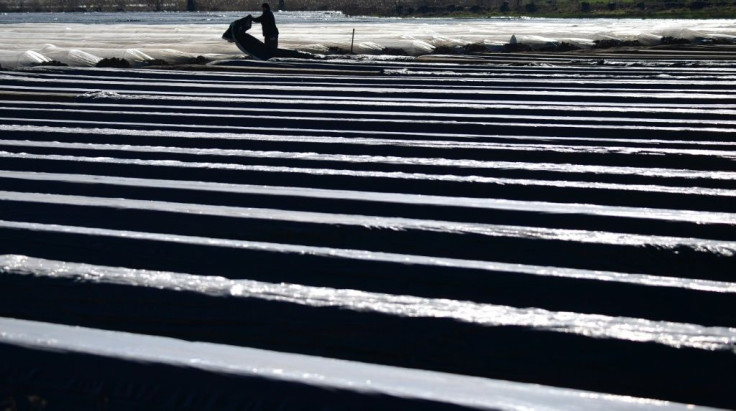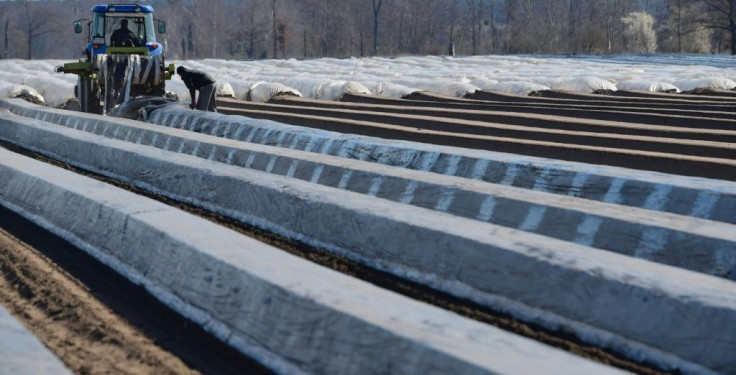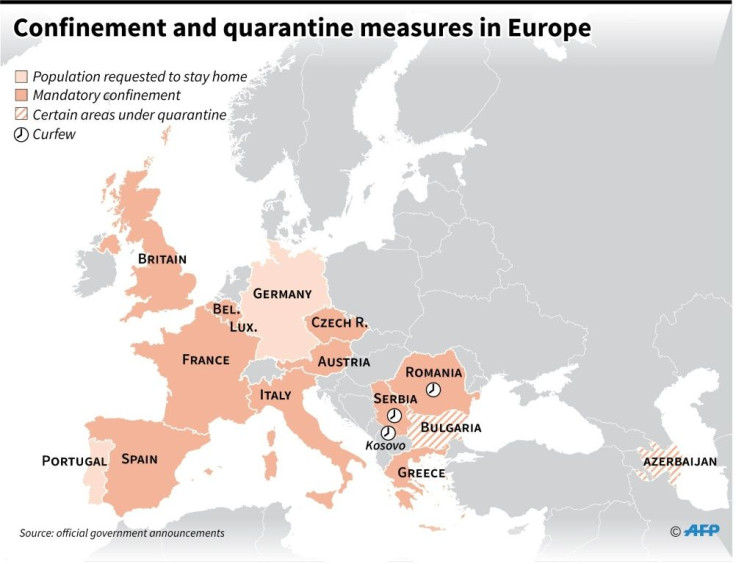As Virus Leaves Borders Shut, European Farmers Sound Alarm

Whether it's served with butter and ham, drowned in hollandaise sauce or topped with a fried egg, nothing says spring in Germany like asparagus.
But this year, the cherished vegetable may be a rare sight on dining tables as many of the foreign seasonal workers who would usually harvest the crop are unable to enter the country because of travel restrictions imposed over the coronavirus.
"The situation is very tense for us farmers," says Thomas Syring, who runs a farm in Beelitz, a town in the state of Brandenburg known for its white asparagus.
Syring is just one of hundreds of farmers faced with the threat that his crops may be left rotting in the fields because of a serious shortage of workers.
On Wednesday, his problem grew bigger as Germany announced a complete ban on seasonal workers entering until further notice as part of measures to slow the spread of COVID-19.

Around 300,000 seasonal workers come to Germany each year, mainly from Poland and Romania, to help with fruit and vegetable harvests.
During a normal season, Syring's farm employs about 60 workers from Romania, Poland and Bulgaria. This year, only 10 have arrived.
"At the moment, it is cold again, it will slow down the growth of the asparagus. But in a week, at the latest, the asparagus will come out of the ground and continue to grow," he warns at his farm, where rows upon rows of asparagus are waiting beneath sheets of white plastic to keep the soil warm.

Juergen Jakob of Beelitzer Spargel, an association for asparagus farmers in Beelitz, says only half of the 5,000 seasonal workers required in the region have made it to Germany.
According to German agriculture minister Julia Kloeckner, Europe's biggest economy requires "30,000 seasonal workers in March alone, with the number rising to 85,000 in May".
The government has announced measures to ease red tape around the hiring of new workers in the sector, and to allow workers that are available to work for longer.
In an interview with Bayerischer Rundfunk, Kloeckner also said she would like to see asylum seekers employed as seasonal workers, though this would require a change in the law.

A jobs portal launched on Monday for those seeking work in the farming sector had attracted 16,000 applications by Tuesday evening, Kloeckner said.
A similar portal has been launched in Austria, which is facing a manpower shortage of 5,000 to help in fruit and vegetable farms.
Likewise in Switzerland, fears are growing that only a fraction of the 33,000 seasonal workers required annually will be available this year.
France has meanwhile issued a call for people laid off during the lockdown to head to the fields and help with the harvest.
But the farmers say new workers are no substitute for experienced farmhands.
Some had been flying workers in on chartered flights to dodge closed land borders, while others tried offering better deals to entice workers.
Emese Molnar, who runs a Romanian company that sends seasonal workers to countries including Germany and the Netherlands, said some farms were offering "double salaries, as well as very good conditions on accommodation and catering".
But beyond border barriers, some were simply worried about travelling.
Responding to the Wednesday's entry ban, Joachim Rukwied, president of the German Farmers' Association, said: "This entry ban must be kept as short as possible. Our farms are prepared to implement and enforce all measures to prevent infection."
For Jakob in Beelitz, time might already be running out.
"We are now very close to the asparagus harvest, but if we do not have enough harvest workers, we will not be able to harvest the whole crop," he warns.
Bringing in workers from other sectors won't solve the problem because of the time it takes to train them, he says.
"Perhaps they will have learned how to do it by the end of the asparagus season, but that doesn't help us very much."
© Copyright AFP {{Year}}. All rights reserved.





















